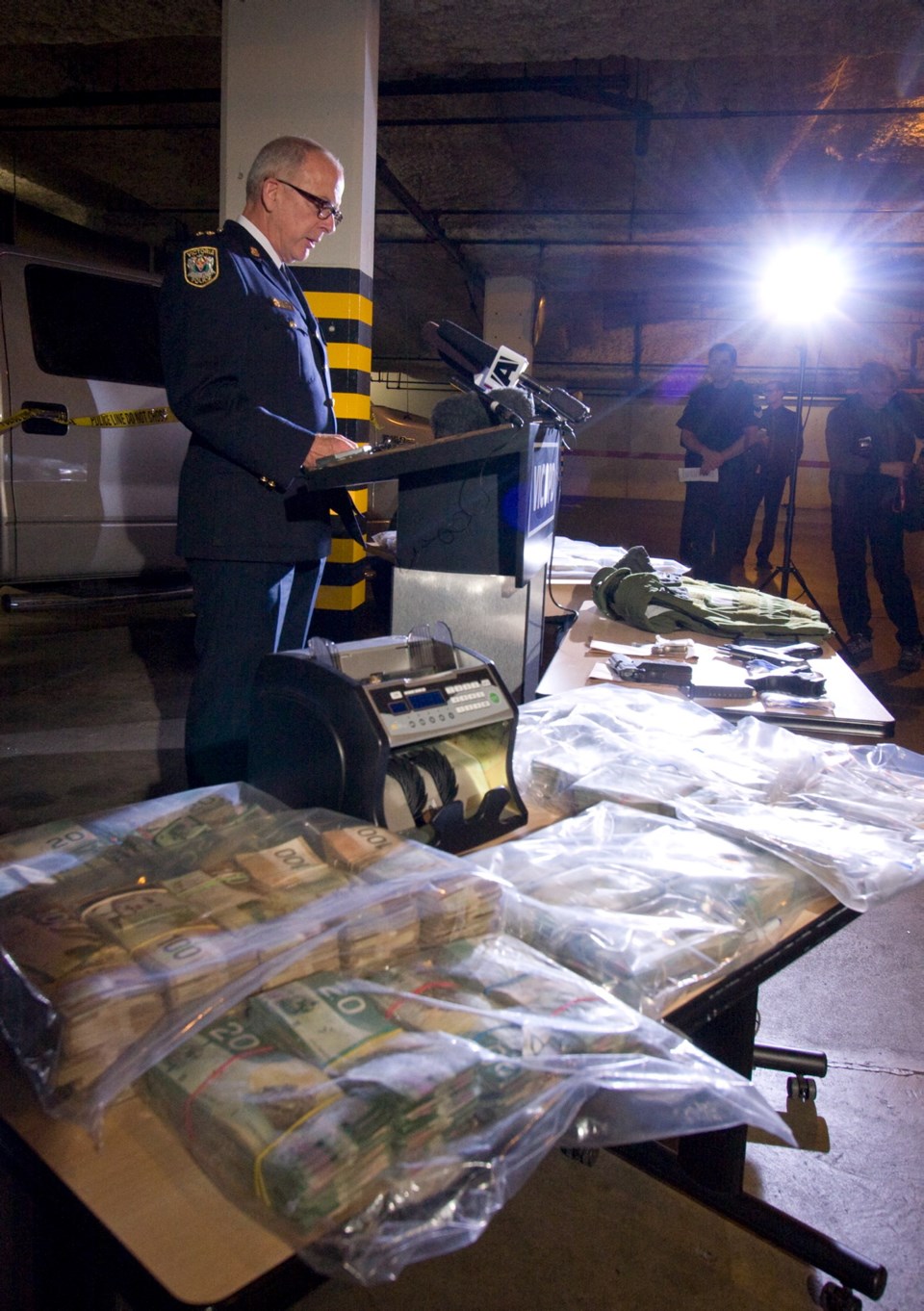In a raid just over a year ago, Victoria police confiscated drugs and more than $15,000 in cash stashed in an apartment on Constance Avenue in Esquimalt.
Where’s that chunk of change now?
It’s been forfeited to the province under controversial legislation that allows such seizures without a judge’s say-so — so long as no one makes a claim for it within 60 days.
Two years ago, B.C. became the first province to adopt “administrative forfeiture” — the power to confiscate money or goods valued at less than $75,000 so long as a Ministry of Justice official deems them to be the proceeds of crime. No conviction necessary.
Since then, the value of goods forfeited this way has totalled more than $1.7 million, according to the Ministry of Justice.
In the Esquimalt case, Kevin Demmons, 31, faces a charge of possession of a controlled substance and is slated to appear in court Sept. 5.
Victoria police seized the money under criminal law as the proceeds of crime — the only authority it has —and forwarded it to the B.C. Crown Prosecutors Office, which decides how to proceed with forfeiture, said Const. Mike Russell. It turned out to involve federal prosecutors, who approved the charge of possession against Demmons but could not invoke federal forfeiture for a possession charge.
Victoria police then sent the information to B.C.’s Civil Forfeiture Office, which seized the money using administrative forfeiture — whether or not Demmons is convicted and without proving that the $15,000 was gained through crime.
The question of whether the property is connected to criminal activity isn’t the point, said Micheal Vonn, a lawyer for the B.C. Civil Liberties Association.
Vonn accused the province of using civil forfeiture as a “cash cow” to take advantage of the lower standard of proof to seize property although the Criminal Code already ensures law breakers cannot keep the fruits of their crimes.
“What people need to understand is that these are not the rights of criminals — these are everybody’s rights,” Vonn said.
Prior to 2006, criminal forfeiture was the only means of seizing property and it required a conviction. The province enacted the Civil Forfeiture Act in 2006 to allow it to use civil court proceedings to seize proceeds of unlawful activity, if it could meet the standard of “on the balance of probabilities” — less onerous than “beyond a reasonable doubt.”
Lynda Cavanaugh, an assistant deputy minister in the Ministry of the Solicitor General, defends administrative forfeiture, saying it saves time-consuming procedures and the expenditure of “thousands of dollars” in civil court costs needed to keep low-value property and cash from drug dealers, gangs and organized crime groups that do not dispute the province’s claim.
Moreover, it allows the province to “deliver more proceeds back into local crime prevention and remediation efforts,” Cavanaugh said, adding $8.5 million that has been used to fund anti-crime programs in B.C. communities.
Since 2006, there have been 560 civil forfeitures and 543 administrative forfeitures in B.C. — more than $30 million worth of forfeitures in total. And all but one case have gone the province’s way.
The exception was a $52,000 truck owned by former Saanich fire captain Frank Albert Wolff, who lost his job after pleading guilty to possession of marijuana for the purpose of trafficking. Four kilos of pot worth up to $9,600 was found in the vehicle on Nov. 23, 2005.
The B.C. Supreme Court ruled it was not in the public interest for Wolff to forfeit his truck, but the director of civil forfeiture pushed for it, taking the case to the B.C. Court of Appeal. That court dismissed the appeal, citing Wolff as a first offender, who lost his job and owned a truck worth far more than the pot.
Many people do not have the funds to defend themselves against the province in civil proceedings, and even if they do, it’s hard to find private lawyers proficient in administrative forfeiture law, Vonn said.
“It’s really only the government lawyers who are spending any time getting up to speed on them,” she said, adding it’s “very misleading” to link administrative forfeiture and organized crime when it could affect anyone not even charged, let alone convicted of a crime.
The legislation eliminates the due-process protection when it comes to policing the police, she said.
“They now have a way to get this evidence or information into a court —- and it doesn’t matter whether it’s derived from breaches to the Charter of Rights or not,” Vonn said.
The province denies this, saying a “rigorous” due process of law still applies while making communities and families in British Columbia safer.
“The Supreme Court of Canada has upheld the constitutionality of civil forfeiture laws,” Cavanaugh said.
Not so, Vonn responded. The court upheld the right of provinces to legislate in this area, but “this does not mean that all aspects of the civil forfeiture program have been found to be constitutional.”
That awaits future legal challenges, she said.



